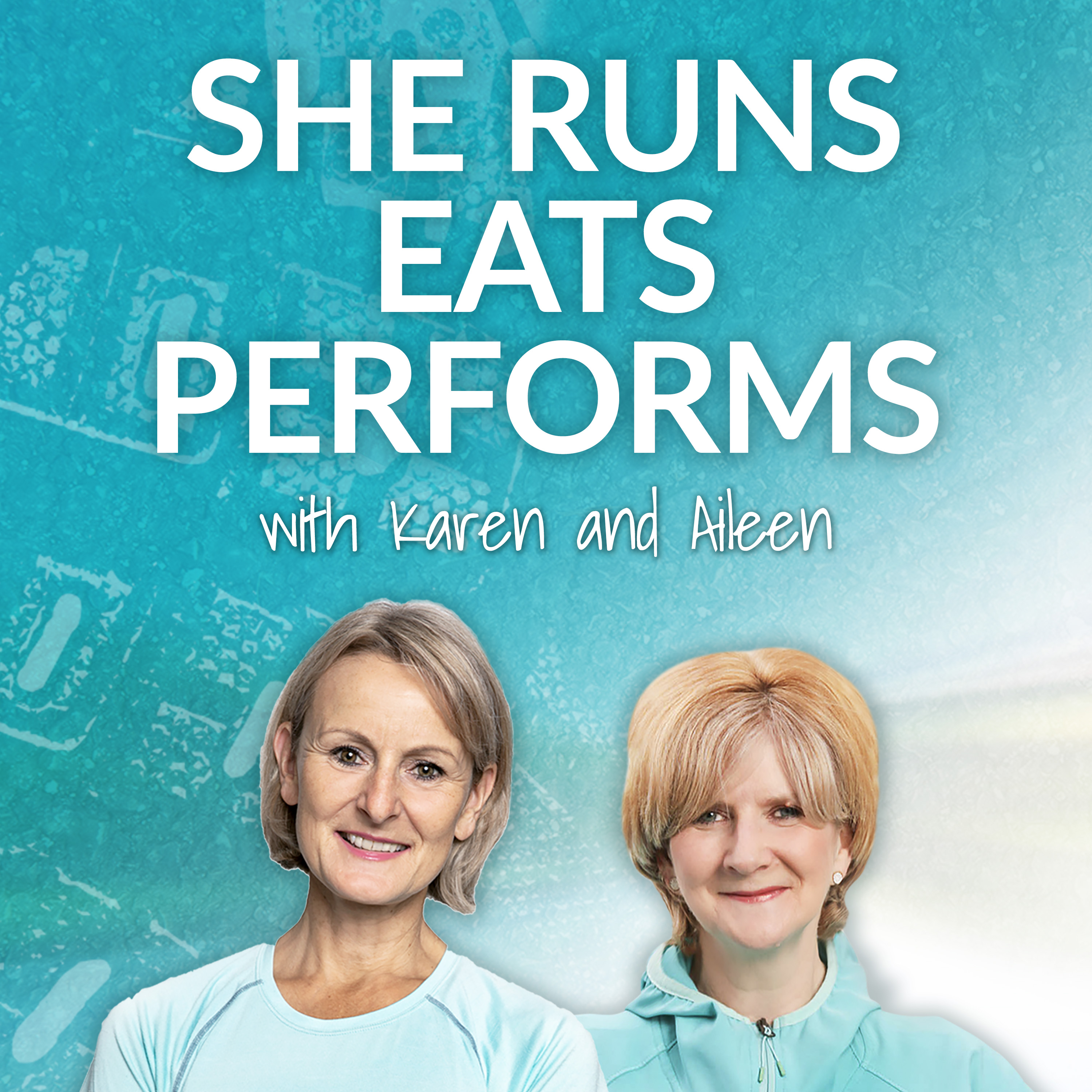Running-Induced Low Blood Sugar
Running-Induced Low Blood Sugar Levels
Have you ever experienced the symptoms of low blood sugar? Symptoms including: shakiness, lack of focus, low energy and brain fog?
Low blood sugar levels are quite common BUT, did you know they are known to occur at the outset of running training in susceptible individuals? This condition is known as Transient (or Rebound or Reactive) Hypoglycaemia.
Maybe you have been running with some of these symptoms but never really understood what it was or why it was happening. So…here we are going to:
- Outline what Transient Hypoglycaemia is and what the current research is say about it regarding athletes and performance
- Discuss nutritional approaches to help prevent, limit or manage the symptoms
- Give ideas of how to put the nutritional practices into action
Show Notes:
(05:30)
What is Transient Hypoglycaemia?:
Transient hyperglycaemia in exercise (also known as reactive or rebound hyperglycaemia) is a condition where carbohydrate foods, which have been ingested approximately 30 minutes to 60 minutes before exercise results in low blood sugar levels at the onset of exercise. For some people this could lead to many different symptoms including:
- Dizziness
- Sluggish/low energy
- Jittery/shaky
- Poor focus/foggy brain
- Nausea
- Headache
- Blurry vision
The principle cause of this phenomenon in exercise is not completely understood, however, it is thought to be linked to increased insulin levels (known as hyperinsulinaemia). Some studies suggest this hyperinsulinaemia, is a result of high glucose levels (following the consumption of carbohydrate rich foods) but is accompanied by a subsequent rapid fall in blood glucose levels.
Overall the research is currently suggesting that athletes who develop transient hypoglycaemia tend to have an enhanced insulin response compared to other athletes following ingestion of the same amount of carbohydrate rich foods pre exercise.
So would it be advisable for these athletes to avoid carbohydrate pre exercise?
The answer is NO because it is thought that the symptoms experienced don't actually affect performance itself and the data advocating carbohydrates to enhance performance far outweighs any temporary discomfort that may be felt by an athlete as a result of this transient low blood sugar status.
(11:48)
When does Transient Hypoglycaemia (TH) occur and for how long does it last?
TH tends to occur within 30mins of commencing exercise BUT for some runners it may occur straight away whilst for others it might be several minutes into the run before symptoms appear. It will vary from runner to runner, however may also vary between runs within one individual. So you might go out for a run one day and you find that just as you start running, you're starting to feel these symptoms. Regarding how long this condition lasts, again, this varies between individuals and also within the same individual on different runs, but it is not thought to last more than approximately 30 minutes, with the average being around 10 to 20 minutes.
BUT….the AMOUNT of carbohydrate digested within the hour pr- exercise is not thought to alter the subsequent fall in blood glucose levels at the onset of exercise. it appears to be the individual’s sensitivity to raised insulin levels that is the trigger for TH.
(17:30)
FEMALE FACTORS:
- Glucose levels tend to decrease more so in women than in men during exercise post-prandial (post food) suggesting that women could possibly be more prone to Rebound Hypoglycaemia than men
- Obese males appear to have a larger exercise-induced insulin drop than obese females. This would suggest that women may be more prone to Rebound Hypoglycaemia……if increased insulin levels are the principle driver of this condition. Possibly some overweight women who turn to running to help reduce weight may find they experience some of the symptoms of hypoglycaemia when they first begin this form of exercise. BUT, maybe as their weight reduces the symptoms may reduce also
- Women appear to have a lower glucagon response than men. Glucagon is a hormone important for blood sugar control, so lower levels in women would suggest that they may be more susceptible to blood sugar imbalances and the knock-on effects of that including, potentially, Transient Hypoglycaemia in exercise
(20:01)
Nutritional Approaches to Managing Transient Hypoglycaemia:
The insulin response to fructose rich foods is thought to be lower than the response to glucose rich foods so this could be an easy swap for runners to make if they are insulin sensitive. Some foods known to be naturally high in fructose include:
- Fruit juices – but limit intake
- Apples
- Pears
- Grapes
- Watermelon
- Asparagus
- Peas
- Courgette
NOTE: these are natural foods with a high fructose content NOT processed foods where fructose and high fructose corn syrup have been added as a cheap sweetener to enhance the taste and flavour of the food.
There are also some natural sweeteners containing high levels of fructose. These include:
- Honey
- Agave
- Maple syrup
- Coconut sugar
- Palm sugar
- Blackstrap Molasses
It is important to note that most fruits, vegetables and natural sweeteners will contain both fructose and glucose, so it is about choosing foods that have a HIGHER content od fructose as these ones do. For example: the ratio of fructose to glucose in agave syrup is 55.6 to 12.4, which is a significant difference.
Additional nutritional approaches to managing the symptoms of Transient Hypoglycaemia include:
- Having a snack, combining protein and carbohydrate, pre-exercise
- Consuming slow-release carbohydrate foods within the 60minute window pre-exercise
- Avoiding coffee pre-exercise
- Always carrying an emergency snack
(36:49)
Putting these nutritional practices into place
- Remember the 90-minute rule: if the run is going to be 90 minutes or less run in the FASTED STATE
- Eat your last meal or snack at least one hour before setting out on a run. This could mean insulin levels may have peaked and be reducing before the run commences
- Ensure your last meal/snack contains slow-release carbohydrate food sources
- To compensate for having not eaten for at least an hour pre-exercise, when running commences introduce food 30 minutes into the run, rather than waiting 45 to 60 minutes, which is what is generally recommended
- Choose foods containing predominantly fructose
But remember everyone is different so it is about trialling the various approaches mentioned and determining which one is most suitable for your situation.
(44:19)
ACTION POINT: If you currently have a coffee before you run, trial running first and then enjoy your coffee.
For those who are coffee dependent trial one run without a coffee initially and observe for differences in running form, as well as physical and psychological symptoms.
Observe for symptoms over a period of time because initially you might feel worse, but as time goes on, you may find symptoms disappear and performance improves.
(47:04)
KEY TAKEAWAYS:
1) Transient Hypoglycaemia in exercise (also known as Reactive or rebound Hypoglycaemia) is a condition where carbohydrate foods consumed approx. 30mins-60mins before exercise result in low blood sugar (hypoglycaemia) at the onset of exercise.
2) This could lead to symptoms such as:
- Dizziness
- Poor focus
- Jittery
- Sluggish
- Nausea
- Headache
- Blurry vision
3) The causes of this phenomenon are not completely understood; however it is thought to be linked to increased insulin and glucose levels accompanied by a rapid fall in blood glucose levels (to levels below 3.5mmol/L) at the onset of exercise. Pre-exercise CHO intake appears to be the trigger.
4) Transient Hypoglycaemia tends to occur within 30mins of commencing exercise and appears to last between 10-20mins on average.
5) It is thought that these symptoms do not affect running performance and current data suggests the performance enhancing effects of pre-exercise CHO intake outweighs any discomfort that may be felt by an athlete as a result of temporary low blood sugar levels.
6) There are several nutritional approaches to consider to help avoid or limit the effects of Transient Hypoglycaemia including:
- Choosing fructose dense foods/natural sweeteners
- Combining protein and carbohydrates
- Choosing slow-release CHO food sources
- Eating last snack/meal at least 60mins pre-exercise
- Fasted-state running if training is less than 90mins
- Avoid coffee pre-exercise
7) Remember that we are all individual so it really is about trialing the various approaches and then deciding which one is most suitable to your situation.
Related Topics:
Blood Sugar Balance for Female Runners
Nutrition Basics For All Runners
Disclaimer:
The suggestions we make during this episode are for guidance and
advice only, and are not a substitute for medical advice or treatment.
If you have any concerns regarding your health, please contact
your healthcare professional for advice as soon as possible.
Aileen Smith and Karen Campbell met at as nutrition students (Institute for Optimum Nutrition, London) and became lifelong friends and nutritional buddies! Both have a love of running and a passion for nutrition, delicious food and healthy living.
Together they host RUNNERS HEALTH HUB. A place for like-minded runners who are looking for simple ways to support running performance, energy, endurance, and general great health.
We are excited to be able to share our expertise, experience and short cuts with you. We hope you'll join us again. If you'd like to know more about us and She Runs Eats Performs please check out our TRAILER.
If you're ready to make learn more about how you may introduce easy nutrition into your running and training plan join our Easy Nutrition For Healthy Runners Online Programme for short videos, recipes, downloads and LIVE training and Q&A.
As a THANK YOU to you as one of our valued listeners, we have a special offer for you use COUPON CODE POD to get 33% discount off the full price which brings the price to £199.
If you’d like help from Karen and Aileen to design a personalised sports nutrition plan for your running - please contact them at hello@runnershealthhub.com
Happy Running!
Aileen and Karen

